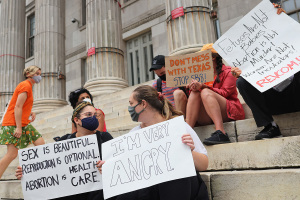Elon Musk’s 'back to work' tweet: A lesson for inner-city children?
“Back to work,” says the wealthiest man in the world.
One thing Elon Musk knows well is the value of the lowly “work” that some detest from schooldays. In an article in Inc. Magazine, columnist Zetlin says:
“When Tesla Owners of Silicon Valley tweeted the news [that Musk became the richest person in the world], Musk's response was just six words, ‘How strange,’ followed by ‘Well, back to work’...That might seem like a pretty ho-hum reaction to becoming the world's richest person.”

Musk, a tireless worker, becomes the world’s richest person this year with about $190 billion in wealth. Upon learning that he became the richest man in the world, he reminded himself and others through the “ho-hum” response, “Back to work.” The “work,” which Musk alludes to, includes his work in pursuit of his out-of-the-ordinary ambitions, one being his unrealistic ambition to establish a community of humans on Mars; yes, on planet Mars!
Musk’s words and life embody the statement: If I worked relentlessly towards my goal, I could make even an unrealistic goal a reality. So far, he has been right about his work.
Work puts food on the table
While Musk no longer needs to work to put food on the table, most parents/fathers around the world must work to provide for their families. Education is the universal qualification – whether in a faraway country or in the USA – that helps parents put food on the table.
When I was in high school in India, I played cricket for my high school team. The competitive sports required hours of practice, and was a distraction from the ho-hum schoolwork. In this context, my parents, who lived a paycheck-to-paycheck middle-class lifestyle, reminded me often, “To put food on the table as an adult, you MUST do well at school.” Looking back, they were right to ensure that I learned to connect homework and rewards that extended well beyond school.
Inner city schools are turning out illiterates
Ms. Kim Klacik highlighted the problems of poverty and illiteracy in Baltimore in her promotional video while running in 2020 for the office of the Congressional Representative from the City of Baltimore. Her video captures a perennial problem with Baltimore city schools, “11 out 12 boys cannot read at grade level, and in over a dozen high schools, not one student is proficient in math.” In other words, they are illiterate.
Armstrong Williams in his op-ed for The Hill (2017) said this, “According to Project Baltimore investigative journalist Chris Papst, reading proficiency rates among Baltimore High School graduates hover at around 11 percent, and math proficiency rates hover around 12 percent. This is in a school system that graduates roughly 70 percent of its students each year. There is clearly a major disconnection between the high graduation rate and the extremely dismal academic proficiency rate.”
He also noted that city schools spent $16,000 per student (top 5 in the nation). He was not kind in his condemnation of the city when he said in the same op-ed, “At worst, Baltimore’s performance is a genocidal crime against generations of children who are then turned out into the streets to face a world of crime, drugs, prison and death that has resulted in a murder rate of over 300 per year.” Can you blame him?
As Klacik and Williams have reported, most of the students leaving before or after the 12th grade from inner city Baltimore schools are “illiterates” because they lack grade-level reading comprehension and math skills necessary for gainful employment in life; inner-city poverty is here to stay.
Change is resisted
Illiterates have been flowing out of our inner city schools for decades, and their unemployment or underemployment has scarred our inner cities with signature poverty. Further, inner city young adults, without marketable education and employment to put food on the table, are tempted to choose a life of crime and imprisonment.
City governments have failed inner city public school children. Money is cited as the only cause, but is it? Is $16,000 a year per student in Baltimore schools (2020) insufficient? In this city, all 15 city council members are Democrats. Sadly, the domination of the city council by one party works against all motivations for change, even changes for the better. The elected officials may think, “We are winning 100%, why change our schools or anything?”
Consider this, Kim Klacik, a Republican, ran in 2020 for a congressional seat on a platform that addressed the problems of Baltimore public schools and lost the election. Her loss is symptomatic – attempts to change inner-city schools are resisted!
Musk’s message for inner city children?
Is there hope? With help from schools and parents, inner city school children must work to EARN a true high school diploma, and in the process, experience the rewards of schoolwork as they prepare for employment to put food on the table as adults. This would solve the lingering poverty that scars our inner cities.
As a business professor for more than 30 years, when I assess the multiple non-traditional and challenging businesses that Musk has already established successfully, it is clear to me and others that work drives Musk; work is as natural as breathing for him.
From Musk’s “Well, back to work” response upon becoming the wealthiest man in the world, we can derive a message for inner city parents and their children in school: If the richest guy in the world is still mindful of his work, how much more should a child in poverty-stricken, inner-city USA value work, in particular, schoolwork?
Paul Swamidass, PhD, is Professor Emeritus, Harbert College of Business, Auburn University, Auburn, AL, USA. After a total of 33 years of teaching and publishing as a business management professor, he retired from Auburn University in 2016 after teaching there for 24 years. His newest book is, Greater Things: The Qualifications of a Biblical Leader, Vide Press, 2020. He and his wife Nimmi worship at Lakeview Baptist Church, Auburn, AL. His Facebook page is here.




























